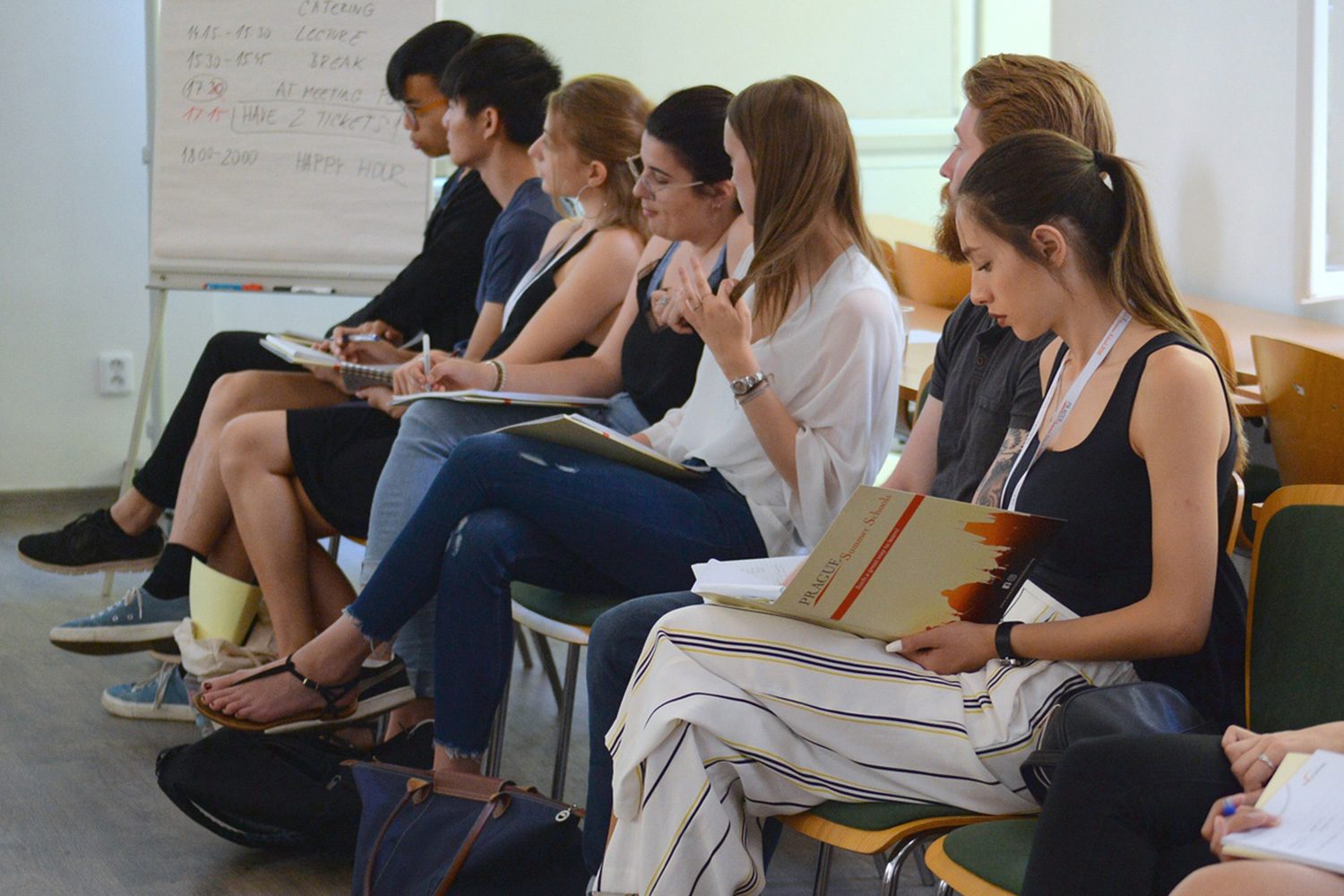Crime Law & Psychology
The aim of the program is to provide students with a unique opportunity to deepen their understanding of the role of psychological knowledge in the criminal justice system. The program host professors from both UK and US Universities facilitate interactive debates with guest lecturers, practitioners, and fellow students.

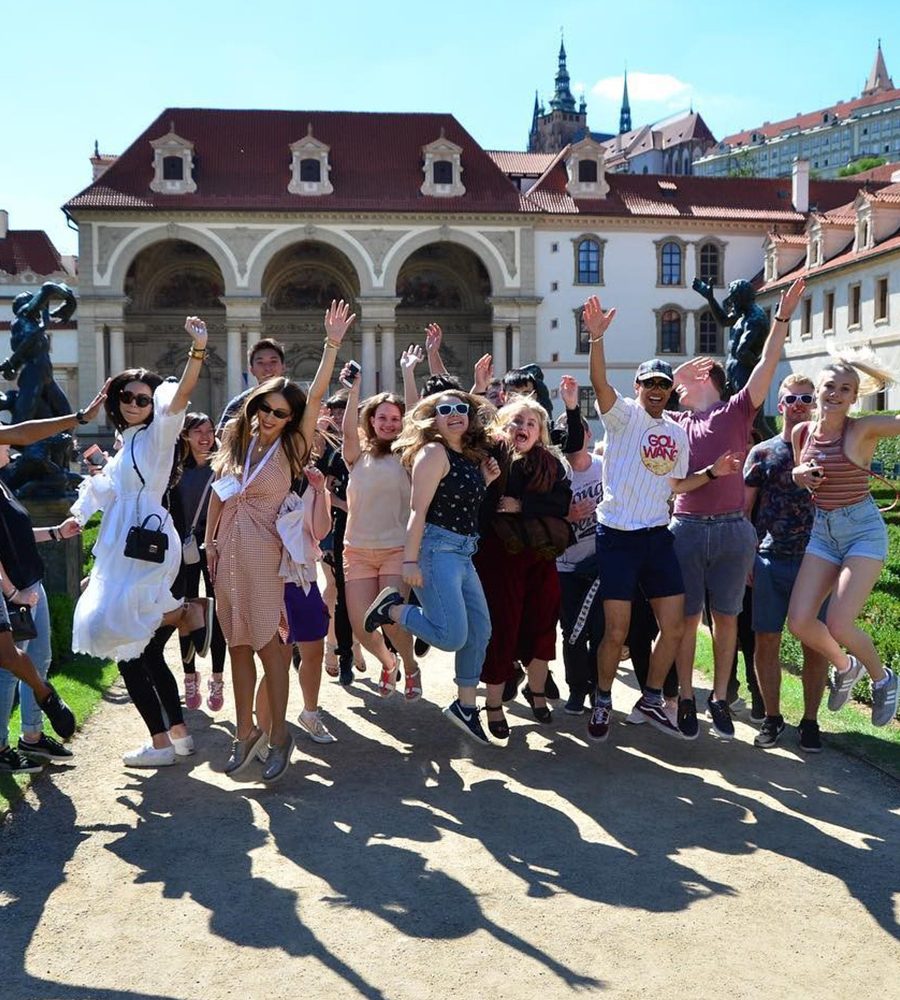
June 29th - July 6th, 2024
Crime Law & Psychology
The aim of the program is to provide students with a unique opportunity to deepen their understanding of the role of psychological knowledge in the criminal justice system. The program hosts professors from esteemed universities in both the UK and the US who facilitate interactive debates with guest lecturers, practitioners and fellow students.
Objectives
The program is based on a broad intellectual framework. We strongly believe that the multidisciplinary approach of the summer school is the key to better understanding the underlying drivers as well as impacts by addressing the full set of political, economic, technological and environmental aspects connected to development cooperation, that we can conceptualize a successful way forward.
We will look into the frictions between globalization, development and sustainability created by international trade, multilateral system of global rules, and business and NGO activities in developing countries
Through case studies, participants will understand how development and sustainability function in a real-world context and how different concepts actually work in practice. This objective will be achieved by using real-life situations and looking into various aspects of development moving towards creating social development and businesses that are sustainable both financially and environmentally.
Program Outline
- Global Environmental Challenges. (A Model of the Environment, Biodiversity, Water, Climate Change, Ozone Layer Depletion, Desertification, Deforestation, Natural Resources and Energy Resources, Environmental Security).
- Sustainable Development, Sustainable Retreat, or Collapse and Regeneration? (Three Scenarios for Development, Contours of Regeneration, From Regeneration to Transformation).
- Responsible Consumption and Food Waste (Consumption patterns and trends, Food waste, Planetary boundaries, Impacts on food security).
- Legal requirements for reporting on sustainability today and tomorrow (reporting requirements, GRI, G4).
- Why do companies care about sustainability? Business losses and benefits
- The history and future of global climate governance
Case Study 1: Eco-tourism – a human-gorilla dichotomy? Mgahinga Gorilla National Park, Uganda
A political ecology analysis of the impact of ecotourism on gorilla conservation and local development in the case study of Mgahinga Gorilla National Park in Uganda.
Case Study 2: Matibabu Foundation, Kibera and Siaya County, Kenya
In 2004, on the realization that the root cause of the Kibera slums’ degrading situation was due to poverty and the endless influx of people from the rural areas (especially western Kenya) in search of employment in Nairobi. He decided to address this challenge by registering Matibabu Foundation, a health NGO that creates a healthy, productive and prosperous society in a marginalized and hard-to-reach rural population in Siaya County, western Kenya. Matibabu stands in Swahili for health and/or treatment. To date, The Matibabu Foundation has created jobs to 55 staff, provided health services to over 60,000 people in Siaya County, initiated Prevention with positives (PwP) and Psychosocial Support Center (PSC) to reduce stigma and to support the HIV victims. The Matibabu Foundation has also entered into a partnership with the International Organization of Migrants (IOM) to provide health services to minority migrant populations in Eastleigh, Nairobi. www.matibabukenya.org
CNN movie about Matibabu Foundation – Youtube
Case study 3: Maendeleo, Agricultural Microcredits / Agricultural Assistance, Tanzania
Maendeleo was founded by teachers and students from Palacky University, Czech Republic, in 2011. The NGO provides microcredits to farmer groups in villages in the Utengule/Usangu area. Today they run four complex projects including training and farming support. As Maendeleo was founded by research and students they are trying to ensure rigorous assessment of their activities.
About Program
It is designed to provide students with advanced knowledge about the application of psychological approaches, theories and research methods in relation to the criminal justice system. Courses on eyewitness memory, false memories, eyewitness identification evidence, police interview techniques courtroom practices will enable students to understand the importance of scientific knowledge in order to avoid biased court procedures and unjust sentences. The students will listen to leading international professors and engage in interactive debates with guest lectures, practitioners and fellow students.
The program aims to invite students of different backgrounds (psychology, legal studies, criminology and sociology), who are eager to discover the interrelatedness of crime, law and psychology and willing to combine a challenging academic environment with the holiday excitement.
Topics:
- recalling witnessed events
- terrorism
- alibi evidence
- bias in forensic science
- legal decision making
- detecting deception.
*Please be aware that the course content is subject to possible revisions. While we have outlined the current topics and modules, there may be adjustments or updates throughout the duration of the course to ensure that we provide you with the most relevant and up-to-date information.
The relevance of legal and psychological approaches in dealing with criminal behavior has long been a topic for debate among scientists as well as practitioners in the criminal justice system. Psychology and law have different visions of the problem, but their intersection constitutes an important concern when dealing with criminal behaviors of individuals. In addition, methods of research used in psychology can be utilized to inform the practices and processes of the criminal justice system. In both cases, psychological knowledge is a critical source of information, the use of which could prevent unjust situations enforced by law. The Summer School was designed to bring together the issues connecting crime, psychology and law and demonstrate the magnitude of this connection in dealing with criminality.
The curriculum outlined is central to the design and purpose of the Summer School. As a part of the program, students will gain knowledge about the application of psychological approaches, theories and research methods in the processes and practices of the criminal justice system.
The aim of the program is to provide students with a unique opportunity to deepen their knowledge on the role of psychological knowledge in the criminal justice system by listening to professors from international universities and to engage in interactive debates with guest lectures, practitioners and fellow students. By participating in the program, students will benefit not only from enhancing their intellectual resources but also from sharing ideas with other students during class discussions and various social events. Exposure to intercultural experience is also a key element of the program. Visit ACADEMICS to find out more about the program.
The curriculum will have a broad reach to encompass many different aspects of crime, law and psychology, giving insight to several different perspectives of the justice system. During your time at the Summer School you will examine the processes used by investigators and in the courtroom and discuss the psychological evidence that highlights the contemporary issues in this field.
Equally important is the frequency of false confessions, this is why special attention will be given to this area and the psychology surrounding this practice. Many have speculated that this is contributed to by the tactics of police interviews, this is why the program will examine the dramatic, high- tension interchange between a small number of individuals (police, suspect, lawyers) and the accused, as this becomes a high stake transaction of information. When faced with poor success in finding reliable cues to deception, researchers’ attention is now being directed towards exploring how to interview more intelligently. Research into this has now given insight on how to recognize suspects lies easier, information that is pivotal to recognizing a false conviction. Students will utilize all the information provided to them and will participate in workshops that are geared to a specific case study, covering issues such as child abuse, domestic violence or rape survivors and more!
Recalling Witnessed Events
Despite their best efforts, eyewitnesses can provide the police with erroneous information. This session examines some of the factors which can impact the reliability of eyewitness memory. We will examine how alcohol and drug use can impact eyewitness memory. We will also examine how interviewers can use interview techniques to enhance the reliability of eyewitness memory reports.
Terrorism
This topic aims to highlight what we know about terrorism. We will examine theories that aim to explain why people engage in terrorist actions. We will also discuss the process of radicalization and the factors which might make some people more susceptible.
Alibi Evidence
If you were accused of a crime, your first defense might be to explain where you were and who you were with at the time of the crime; this is your alibi. However, how believable is your alibi? In this session, we examine the factors that people consider when evaluating an alibi. We will also examine how easy it is for an innocent person to provide a believable alibi.
Bias in Forensic Science
While forensic science has had a huge impact on our ability to identify perpetrators of crime, there are psychological factors that undermine the reliability of this evidence. In this session, we will examine how bias can impact decision making in forensic science laboratories.
Legal Decision Making
Imagine what it must be like to be selected to be a juror. Along with the other members of the jury you must listen to the evidence, evaluate that evidence and then collectively come to a decision about whether the defendant is guilty or not guilty. This is a very complex task that includes many psychological processes. In this session we will examine the issues faced with jury decision making and ask whether a better system could replace the jury system.
Detecting Deception
In a police interview with a suspect, how do the investigators know whether the suspect is telling them the truth, or lying to them? In this session we will examine the evidence on detecting deception. Can we see cues to deception when interviewing them? Can technology help us to detect cues to deception?
Day 1
- 12.00 – 18.00 Registration
- 19.00 – 19.30 Orientation / Ice Breaking Session
- 20.00 Welcome Dinner
Day 2
- 09.30 – 10.00 Introduction
- 10.00 – 11.15 Lecture 1
- 11.15 – 11.30 Coffee Break
- 11.30 – 12.45 Lecture 2
- 13.00 Lunch
- 15.00 Tours of Prague
Day 3
- 09.30 – 10.45 Lecture 3
- 10.45 – 11.00 Coffee Break
- 11.00 – 12.15 Lecture 4
- 12.15 Lunch
- 16.00 Pragulic Tour
Day 4
- 09.30 – 10.45 Lecture 5
- 10.45 – 11.00 Coffee Break
- 11.00 – 12.15 Lecture 6
- 12.15 Lunch
- 14.00 – 15.15 Lecture 7
- 15.15 – 15.30 Coffee Break
- 15.30 – 16.45 Lecture 8
- 19.00 Happy Hour
Day 5
- 10.00 Free Day (Choose from 4 whole-day trips)
- 19.00 Dinner
- 21.00 Boat Tour
Day 6
- 09.30 – 10.45 Lecture 9
- 10.45 – 11.00 Coffee Break
- 11.00 – 12.15 Lecture 10
- 12.15 Lunch
- 14.00 – 15.15 Leccture 11
- 15.15 – 15.30 Coffee Break
- 15.30 – 16.45 Lecture 12
- 17.00 Guest Lecture
Day 7
- 09.30 – 10.45 Lecture 13
- 10.45 – 11.00 Coffee Break
- 11.00 – 12.15 Lecture 14
- 12.15 Free Time
- 18.00 FAREWELL PARTY
Day 8
- Departure
- Earlybird application deadline – February 10th
- Final Application deadline – May 1st
- All students will be informed about the admission decision by May 31st
- If accepted, program fee must be paid within 14 days after receiving acceptance letter
- Day 1 (29. 6. 2024) Registration day (12 p.m. – 6 p.m.)
- Day 7 (5. 7. 2024) End of program and Farewell party
- Day 8 (6. 7. 2024) – Departure
🎯 Objectives
The relevance of legal and psychological approaches in dealing with criminal behavior has long been a topic for debate among scientists as well as practitioners in the criminal justice system. Psychology and law have different visions of the problem, but their intersection constitutes an important concern when dealing with criminal behaviors of individuals. In addition, methods of research used in psychology can be utilized to inform the practices and processes of the criminal justice system. In both cases, psychological knowledge is a critical source of information, the use of which could prevent unjust situations enforced by law. The Summer School was designed to bring together the issues connecting crime, psychology and law and demonstrate the magnitude of this connection in dealing with criminality.
The curriculum outlined is central to the design and purpose of the Summer School. As a part of the program, students will gain knowledge about the application of psychological approaches, theories and research methods in the processes and practices of the criminal justice system.
The aim of the program is to provide students with a unique opportunity to deepen their knowledge on the role of psychological knowledge in the criminal justice system by listening to professors from international universities and to engage in interactive debates with guest lectures, practitioners and fellow students. By participating in the program, students will benefit not only from enhancing their intellectual resources but also from sharing ideas with other students during class discussions and various social events. Exposure to intercultural experience is also a key element of the program. Visit ACADEMICS to find out more about the program.
🗒 Program Outline
The curriculum will have a broad reach to encompass many different aspects of crime, law and psychology, giving insight to several different perspectives of the justice system. During your time at the Summer School you will examine the processes used by investigators and in the courtroom and discuss the psychological evidence that highlights the contemporary issues in this field.
Equally important is the frequency of false confessions, this is why special attention will be given to this area and the psychology surrounding this practice. Many have speculated that this is contributed to by the tactics of police interviews, this is why the program will examine the dramatic, high- tension interchange between a small number of individuals (police, suspect, lawyers) and the accused, as this becomes a high stake transaction of information. When faced with poor success in finding reliable cues to deception, researchers’ attention is now being directed towards exploring how to interview more intelligently. Research into this has now given insight on how to recognize suspects lies easier, information that is pivotal to recognizing a false conviction. Students will utilize all the information provided to them and will participate in workshops that are geared to a specific case study, covering issues such as child abuse, domestic violence or rape survivors and more!
Recalling Witnessed Events
Despite their best efforts, eyewitnesses can provide the police with erroneous information. This session examines some of the factors which can impact the reliability of eyewitness memory. We will examine how alcohol and drug use can impact eyewitness memory. We will also examine how interviewers can use interview techniques to enhance the reliability of eyewitness memory reports.
Terrorism
This topic aims to highlight what we know about terrorism. We will examine theories that aim to explain why people engage in terrorist actions. We will also discuss the process of radicalization and the factors which might make some people more susceptible.
Alibi Evidence
If you were accused of a crime, your first defense might be to explain where you were and who you were with at the time of the crime; this is your alibi. However, how believable is your alibi? In this session, we examine the factors that people consider when evaluating an alibi. We will also examine how easy it is for an innocent person to provide a believable alibi.
Bias in Forensic Science
While forensic science has had a huge impact on our ability to identify perpetrators of crime, there are psychological factors that undermine the reliability of this evidence. In this session, we will examine how bias can impact decision making in forensic science laboratories.
Legal Decision Making
Imagine what it must be like to be selected to be a juror. Along with the other members of the jury you must listen to the evidence, evaluate that evidence and then collectively come to a decision about whether the defendant is guilty or not guilty. This is a very complex task that includes many psychological processes. In this session we will examine the issues faced with jury decision making and ask whether a better system could replace the jury system.
Detecting Deception
In a police interview with a suspect, how do the investigators know whether the suspect is telling them the truth, or lying to them? In this session we will examine the evidence on detecting deception. Can we see cues to deception when interviewing them? Can technology help us to detect cues to deception?
🕒 Schedule
Day 1
- 12.00 – 18.00 Registration
- 19.00 – 19.30 Orientation / Ice Breaking Session
- 20.00 Welcome Dinner
Day 2
- 09.30 – 10.00 Introduction
- 10.00 – 11.15 Lecture 1
- 11.15 – 11.30 Coffee Break
- 11.30 – 12.45 Lecture 2
- 13.00 Lunch
- 15.00 Tours of Prague
Day 3
- 09.30 – 10.45 Lecture 3
- 10.45 – 11.00 Coffee Break
- 11.00 – 12.15 Lecture 4
- 12.15 Lunch
- 16.00 Pragulic Tour
Day 4
- 09.30 – 10.45 Lecture 5
- 10.45 – 11.00 Coffee Break
- 11.00 – 12.15 Lecture 6
- 12.15 Lunch
- 14.00 – 15.15 Lecture 7
- 15.15 – 15.30 Coffee Break
- 15.30 – 16.45 Lecture 8
- 19.00 Happy Hour
Day 5
- 10.00 Free Day (Choose from 4 whole-day trips)
- 19.00 Dinner
- 21.00 Boat Tour
Day 6
- 09.30 – 10.45 Lecture 9
- 10.45 – 11.00 Coffee Break
- 11.00 – 12.15 Lecture 10
- 12.15 Lunch
- 14.00 – 15.15 Leccture 11
- 15.15 – 15.30 Coffee Break
- 15.30 – 16.45 Lecture 12
- 17.00 Guest Lecture
Day 7
- 09.30 – 10.45 Lecture 13
- 10.45 – 11.00 Coffee Break
- 11.00 – 12.15 Lecture 14
- 12.15 Free Time
- 18.00 FAREWELL PARTY
Day 8
- Departure
📅 Important dates
- Earlybird application deadline – February 10th
- Final Application deadline – May 1st
- All students will be informed about the admission decision by May 31st
- If accepted, program fee must be paid within 14 days after receiving acceptance letter
- Day 1 (29. 6. 2024) Registration day (12 p.m. – 6 p.m.)
- Day 7 (5. 7. 2024) End of program and Farewell party
- Day 8 (6. 7. 2024) – Departure
Schedule
Day 1
- 12.00 – 18.00 Registration
- 19.00 – 19.30 Orientation / Ice Breaking Session
- 20.00 Welcome Dinner
Day 2
- 09.30 – 10.00 Introduction
- 10.00 – 11.15 Lecture 1
- 11.15 – 11.30 Coffee Break
- 11.30 – 12.45 Lecture 2
- 13.00 Lunch
- 15.00 Tours of Prague
Day 3
- 09.30 – 10.45 Lecture 3
- 10.45 – 11.00 Coffee Break
- 11.00 – 12.15 Lecture 4
- 12.15 Lunch
- 16.00 Pragulic Tour
Day 4
- 09.30 – 10.45 Lecture 5
- 10.45 – 11.00 Coffee Break
- 11.00 – 12.15 Lecture 6
- 12.15 Lunch
- 14.00 – 15.15 Lecture 7
- 15.15 – 15.30 Coffee Break
- 15.30 – 16.45 Lecture 8
Day 5
- 10.00 Free Day (Choose from 4 whole-day trips)
- 19.00 Dinner
- 21.00 Boat Tour
Day 6
- 09.30 – 10.45 Lecture 9
- 10.45 – 11.00 Coffee Break
- 11.00 – 12.15 Lecture 10
- 12.15 Lunch
- 14.00 – 15.15 Leccture 11
- 15.15 – 15.30 Coffee Break
- 15.30 – 16.45 Lecture 12
- 17.00 Guest Lecture
Day 7
- 09.30 – 10.45 Lecture 13
- 10.45 – 11.00 Coffee Break
- 11.00 – 12.15 Lecture 14
- 12.15 Free Time
- 18.00 FAREWELL PARTY
Day 8
- Departure
- 19.00 Happy Hour
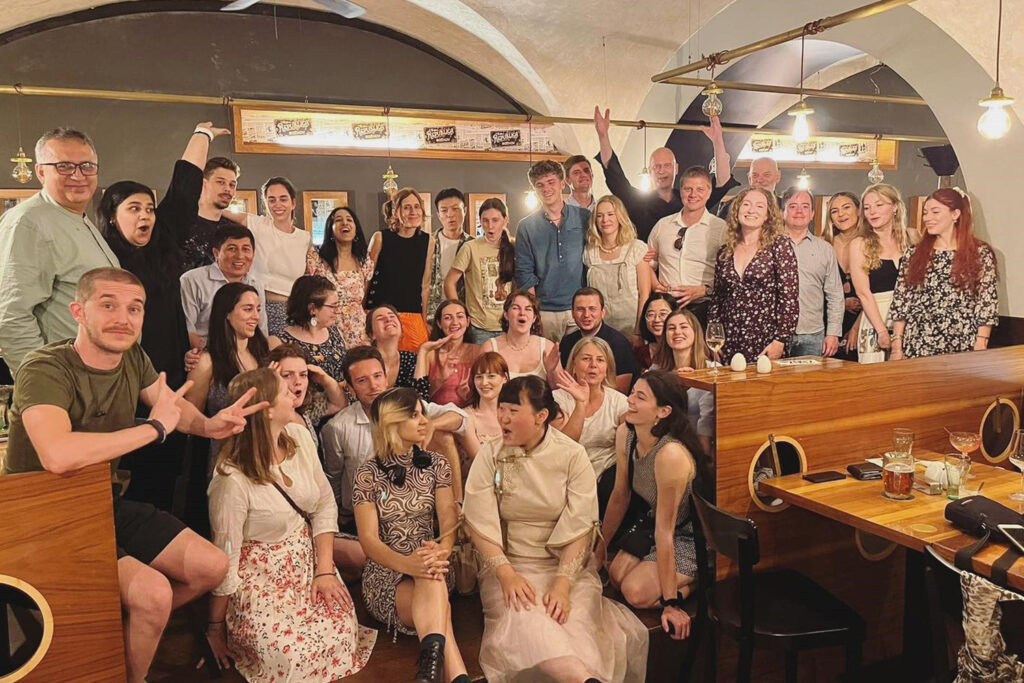
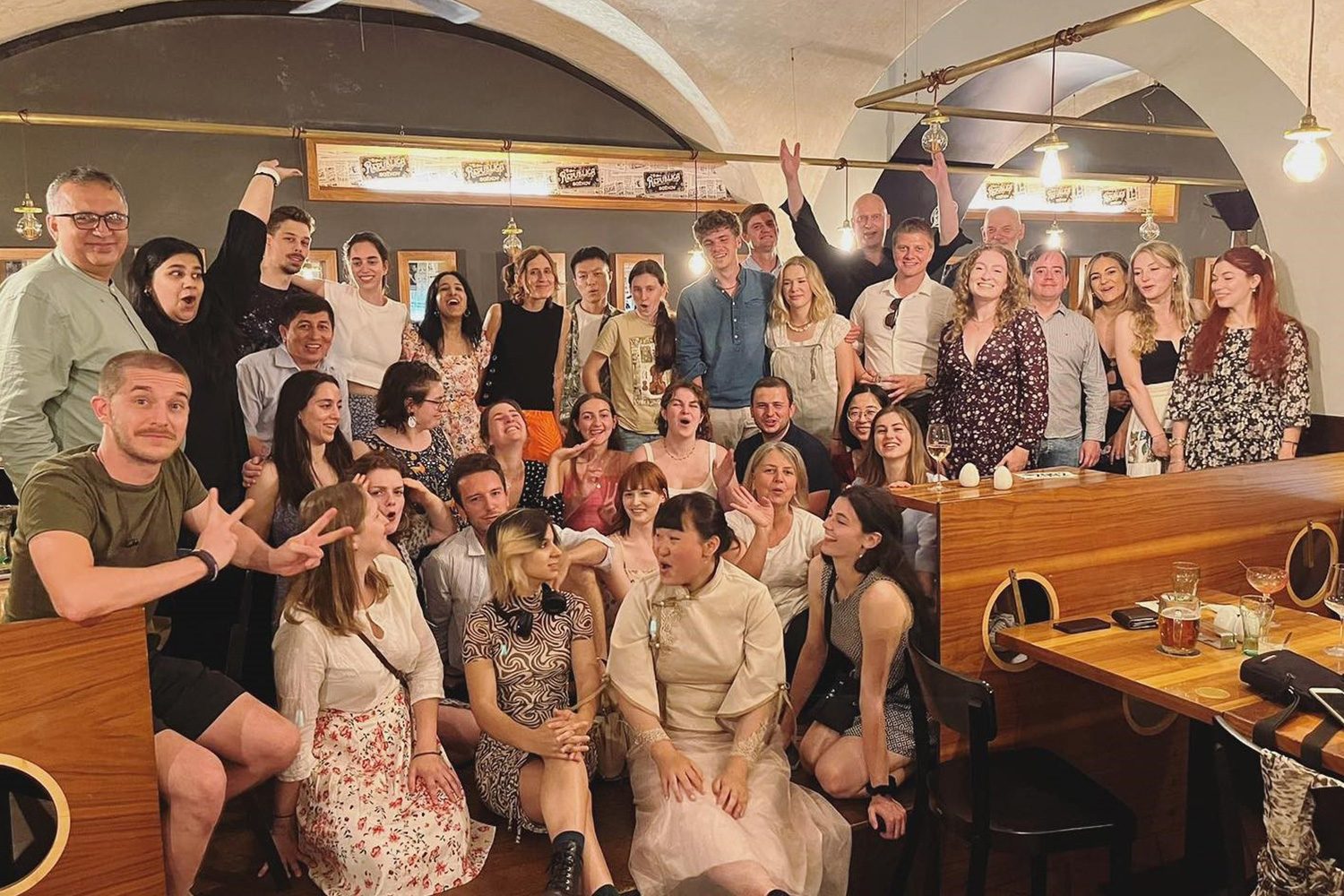
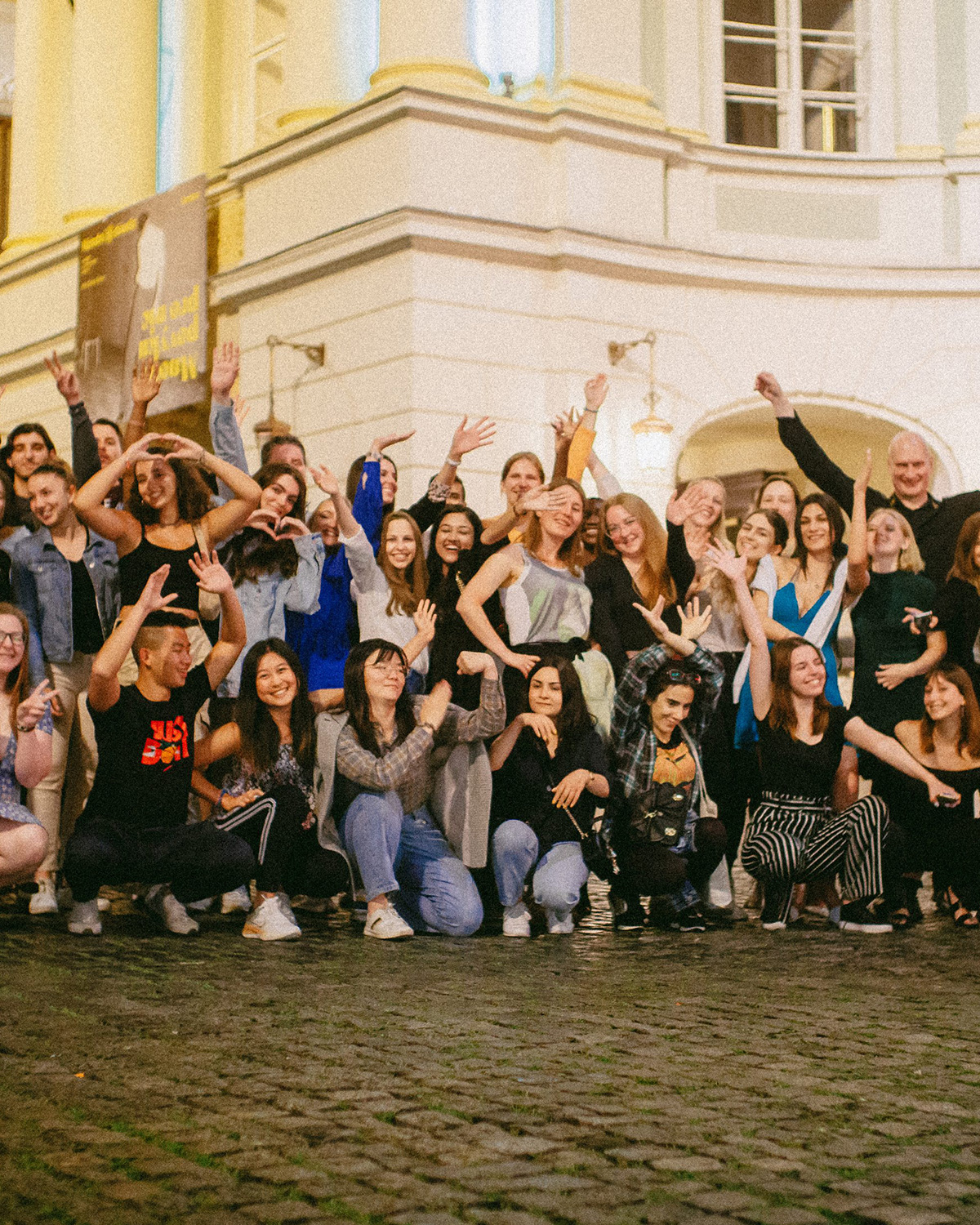
ENJOY
Exciting Day Trips
DEVELOP
Your Language Skills
GAIN
A Cultural Experience
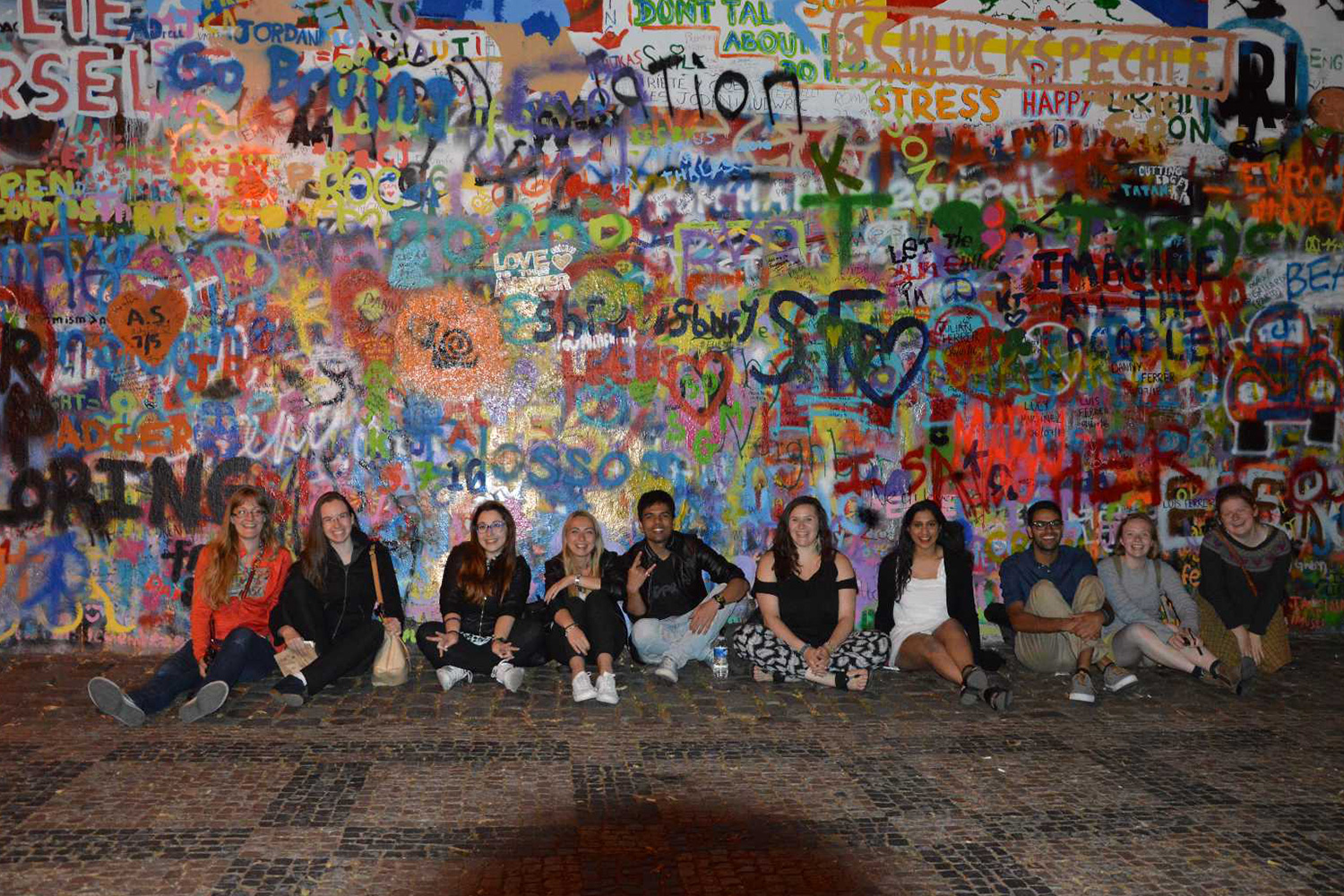
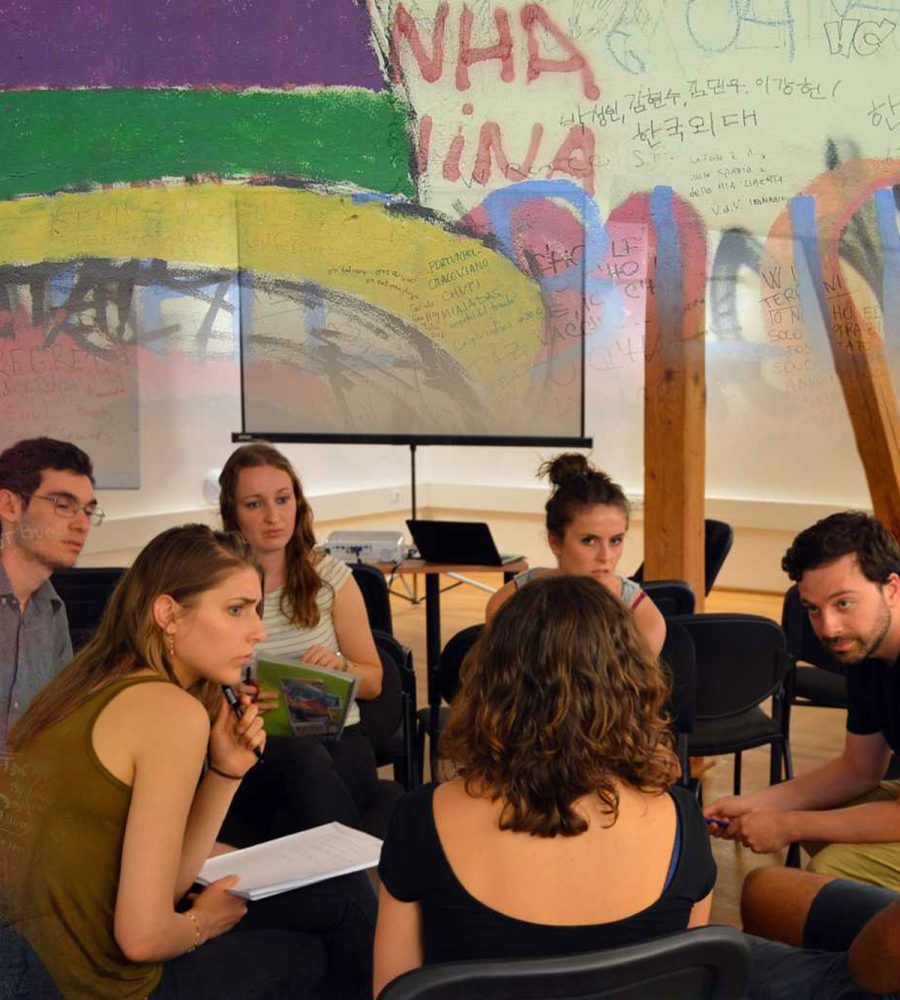

Summer School on Crime Law and Psychology
Enhance Your Learning Experience With These Lecturers
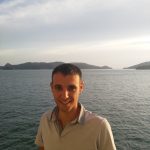
Andrew Clark, Ph.D.
See Andrew's Bio
Andrew Clark is a Senior Lecturer in Forensic Psychology at the University of Bedfordshire, UK. He obtained his PhD in Legal Psychology from the University of Portsmouth, UK and Maastricht University, The Netherlands. His research examines the consequence of withdrawing belief about the occurrence of past events. Andrew has extensive teaching experience in Psychology & Criminal Behaviour, Psychology & Criminal Justice, as well as Legal Psychology. His research interests focus on memory, with specific interests in eyewitness testimony and false memories. He has presented his work at several international conferences and authored articles appearing in prominent psychology journals.
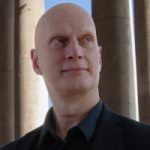
Josh Davis, Ph.D.
See Josh's Bio
Professor Josh P Davis is an award-winning University of Greenwich
Professor (Outstanding Achievement in
Enterprise Award Winner, 2019; Supervisor of the Year, 2018).
He has published a book on Forensic
Facial Identification and 40+ articles on identification and juror
decision-making in rape cases. Josh
has presented his research worldwide, sharing his research on worldwide
media, for example, the BBC, ITV etc. He is
a consultant for police and business (e.g., Australia, France, Germany, India,
Netherlands, Singapore, UK), a media regular (e.g., Washington Post, New York
Times), and works on BBC1’s miscarriages of justice programme, Murder,
Mystery, and My Family.
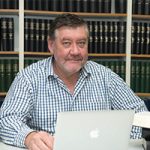
Prof. Deon Erasmus
See Deon's Bio
Deon Erasmus is a Professor of Law and the Head of the Department of Criminal and Procedural Law at the Faculty of Law, Nelson Mandela University, Port Elizabeth, South Africa. In addition, he is the program- coordinator of an LLM coursework degree in Criminal Justice. Prof Erasmus obtained both the degrees Baccalaureus Juris and Baccalaureus Legum cum laude from the University of Port Elizabeth. In 1999 he was awarded the degree Doctor Legum on the acceptance of his thesis ‘Simplification of the South African Criminal Trial Process: A Psycholinguistic Approach”.

Adam Crhák
See Adam's Bio
Adam Crhák is an assistant researcher in the Department of International Law at Charles University Prague. His academic focus is on the pressing issues of humanitarian law and the law of armed conflict with his master’s thesis focusing on civilians partaking role in hostilities with regards to the law of targeting. He is currently finishing his master’s study while on an Erasmus program in The Hague and he already has several articles in the process of being published.

